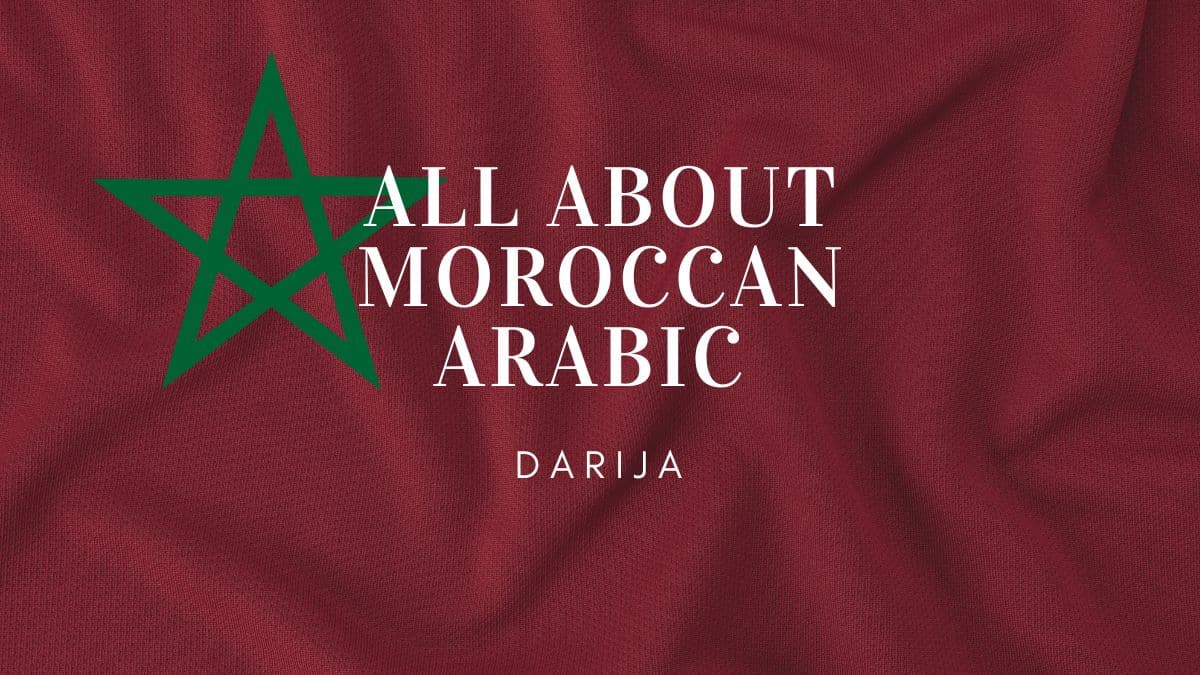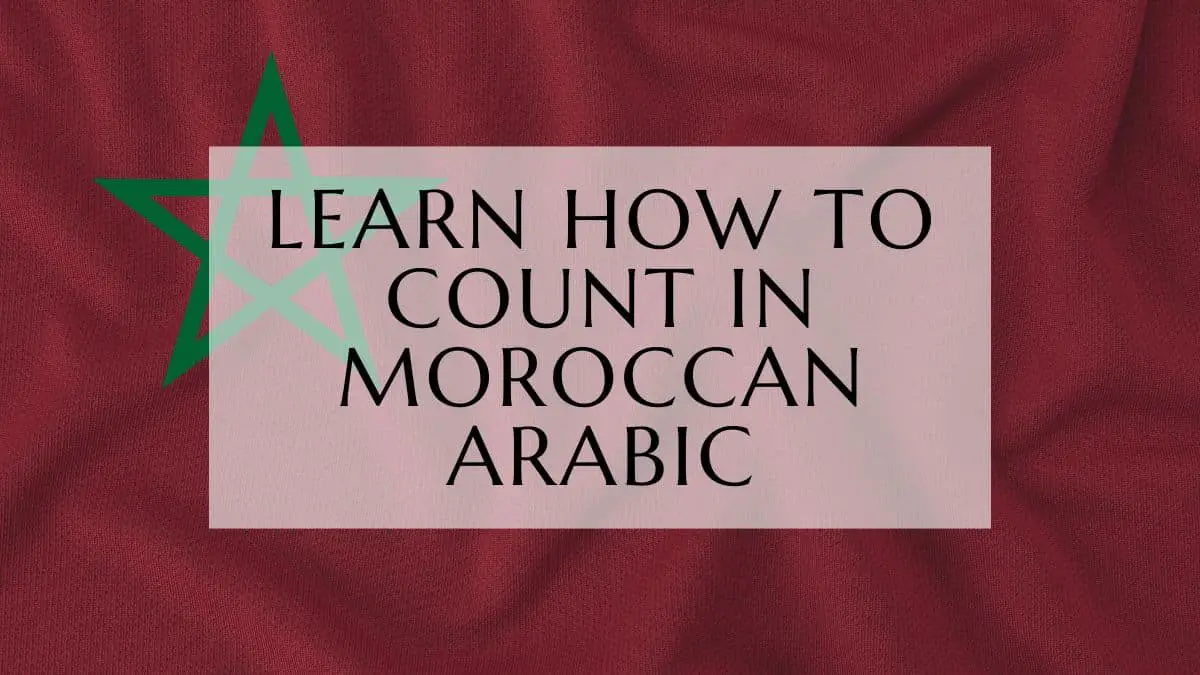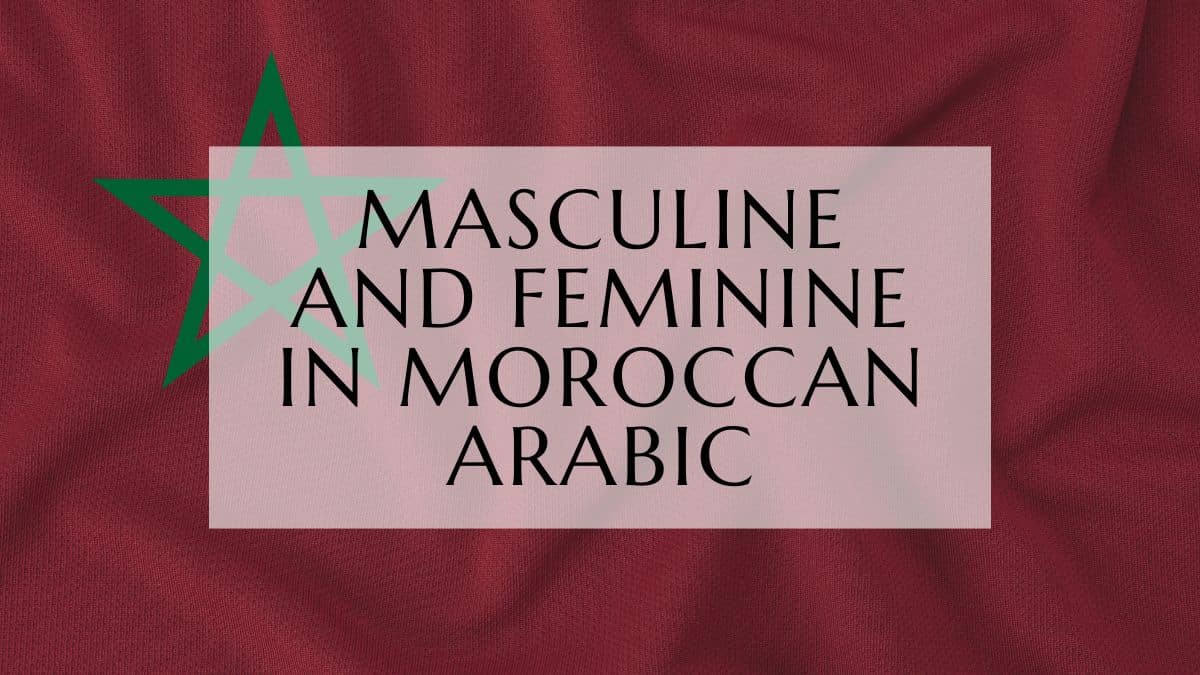Learning the Moroccan Arabic phrase “عافاك” (‘afaak / please) is key to understanding Moroccan manners. It’s like saying “please” in English. Using it correctly can make your conversations smoother and leave a good impression with Darija speakers.
Knowing when and how to use “عافاك” (‘afaak / please) is useful in many situations. It’s important for making requests or expressing gratitude. It’s a must-know for anyone learning Darija, whether you’re just starting or getting better. It helps you communicate with confidence and style.
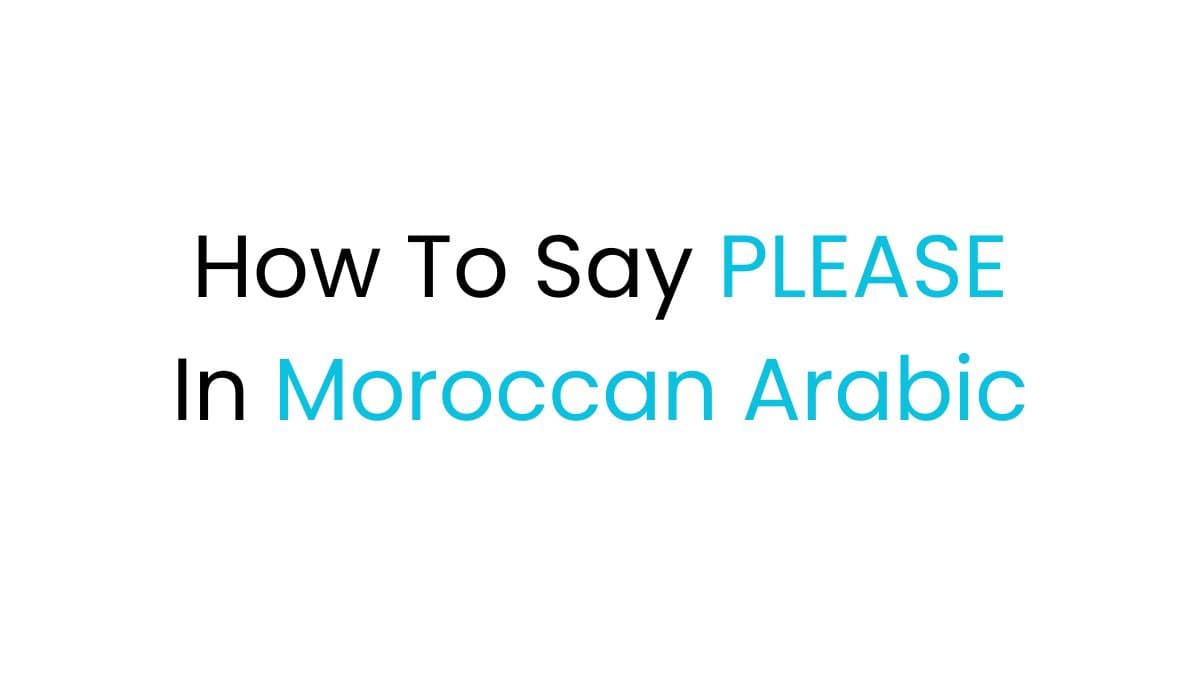
Mastering the Moroccan Arabic Phrase “عافاك” (‘afaak / please)
To say “please” in Moroccan Arabic, use “عافاك” (‘afaak / please). Pronounce it as “‘aah-faak.” You use “عافاك” (‘afaak / please) when asking for something, like “السكات عافاكوم حنا فالقسم” (Skaat ‘afakum! hna fl qism / Silence, please. We are in class) or “مسا الخير، تقدر تقولي فين جات المخبزة عافاك؟” (msa lkhir, teqder tqolli fin jat lmakhbaza ‘afaak? / Good afternoon, could you tell me where the bakery is, please?).
Common Contexts for Using “عافاك” (‘afaak / please)
“عافاك” (‘afaak / please) is used in many situations. You might ask for help, order food, make polite questions, or express gratitude. It keeps your interactions in Darija polite and considerate.
| Context | Example Phrase |
|---|---|
| Seeking help | “تقدر تعاوني عافاك؟” (teqder t’aawenni ‘afaak? / Can you help me, please?) |
| Requesting a favor | “تقدر تعاود عافاك؟” (teqder t’aawed ‘afaak? / Could you repeat that, please?) |
| Ordering at a restaurant | “بغيت عشا عافاك” (bghit a’asha ‘afaak / I’d like dinner, please) |
| Making a polite inquiry | “فين الطواليط عافاك؟” (fin twalet ‘afaak? / Where is the bathroom, please?) |
| Expressing gratitude in advance | “شكرا عافاك” (shukran ‘afaak / Thanks, please) |
Using “عافاك” (‘afaak / please) in Moroccan Arabic makes you sound more polite. It helps you connect better with Darija speakers. Just remember to use it appropriately, depending on the situation and how formal you want to be.
Expressing Gratitude: Responding to Requests
Learning to say “thank you” in Moroccan Arabic is essential. It’s not just about saying “عافاك” (‘afaak / please) when asking for something. Saying “thank you” and “you’re welcome” shows you’re polite and considerate.
Saying “Thank You” and “You’re Welcome” in Moroccan Arabic
The Moroccan Arabic word for “thank you” is “شكرا” (shukran / thank you). For a stronger thank you, use “شكرا جزيلا” (shukran jazilan / thank you very much). When someone helps you or answers your request, say “بلا جميل” (bla jmil / you’re welcome) or “مكاين مشكل” (makayn moshkil / no problem).
Related: You’re welcome in Darija
Knowing various ways to say thank you in Darija can enhance your language skills. Phrases like “ألف شكر” (‘alf shukran / a thousand thanks), “شكرا بزاف” (shukran bzaaf / many thanks), and “شكرا على كلشي” (shukran ‘ala kulshi / thanks for everything) show deep gratitude.
Using phrases like “واخا” (wakha / okay) or “شكرا صاحبي” (shukran sahbi / thanks, friend) adds a personal touch. These phrases are suitable for different situations.
Saying “thank you” and “you’re welcome” in Moroccan Arabic is key for being polite. It also helps you make stronger connections and leave a positive impression. By using various phrases and understanding their cultural significance, you can express your thanks more effectively.
How To Say Please In Moroccan Arabic
The Importance of “عافاك” (‘afaak / please) in Moroccan Etiquette
“عافاك” (‘afaak / please) in Moroccan Arabic is more than just a polite way to ask for something. It’s essential to Moroccan manners and etiquette. Using “عافاك” (‘afaak / please) shows you respect Moroccan culture and care about being polite.
In Moroccan Arabic, how you address someone depends on how well you know them. Saying “عافاك” (‘afaak / please) correctly helps you fit in and make a good impression. It’s all about being polite and showing respect.
Learning to use “عافاك” (‘afaak / please) is crucial for your Darija skills. It allows you to ask nicely, express gratitude, and even apologize. Incorporating “عافاك” (‘afaak / please) into your speech shows you’re thoughtful and considerate.
| Moroccan Arabic Phrase | English Translation |
|---|---|
| عافاك (‘afaak) | Please |
| شكرا (shukran) | Thank you |
| بلا جميل (bla jmil) | You’re welcome |
| سمحلي (smahli) | Excuse me/I’m sorry |
Using “عافاك” (‘afaak / please) and other polite phrases makes you more confident in Darija. It shows you’re familiar with Moroccan etiquette and manners. Practicing how to say “عافاك” (‘afaak / please) politely helps you communicate better in various situations.
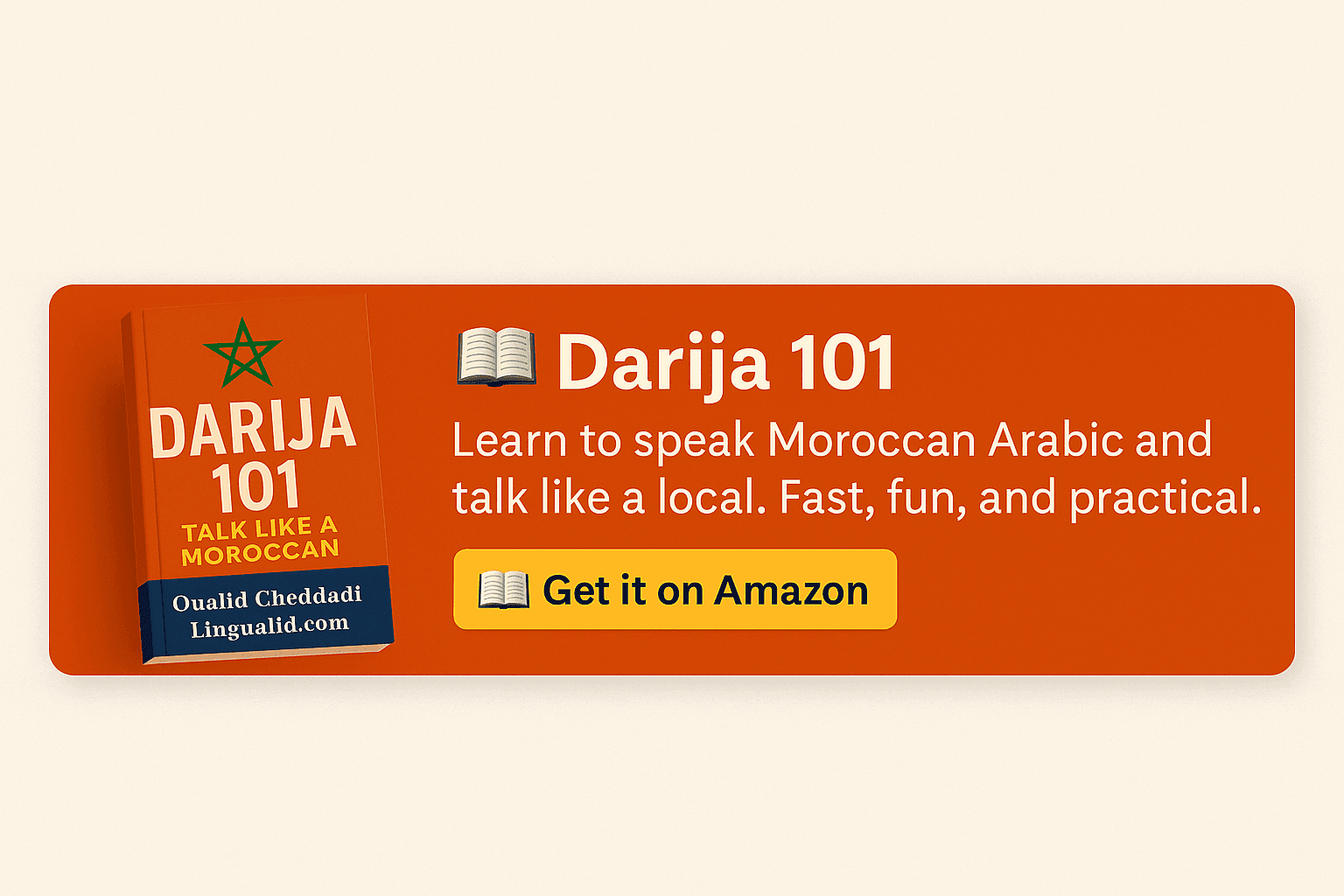
Polite Moroccan Arabic Phrases Featuring “عافاك” (‘afaak / please)
The phrase “عافاك” (‘afaak / please) is key to being polite in Moroccan Arabic. It’s used to soften requests and make them more polite. By adding “عافاك” (‘afaak / please) to common phrases, learners demonstrate a strong understanding of the language and culture.
Here are some polite phrases that use “عافاك” (‘afaak / please):
- “خليني نعرف عافاك” (khallini n’araf ‘afaak / Keep me informed, please)
- “عيطلي من بعد عافاك” (‘ayatli men ba’d ‘afaak / Call me soon, please)
- “تقدر تعاود عافاك؟” (teqder t’aawed ‘afaak? / Could you repeat that, please?)
“عافاك” (‘afaak / please) helps you ask for information or actions in a polite way. It shows respect and consideration, making communication more positive and effective.
| Language | Word for “Please” | Usage |
|---|---|---|
| German | “Bitte” | Should follow requests |
| Italian | “Per favore” | Used at the beginning or end of sentences |
| French | Formal “S’il vous plait”, Informal “S’il te plait” | Used to say “please” |
| Greek | “Parakalo” | Translates to “from good” but means “thank you” |
| Portuguese | “Se faz favor” | Means “please” in Portuguese |
Knowing how “please” is used in different languages helps Moroccan Arabic learners appreciate cultural differences. Using polite phrases in daily conversations improves their communication and cultural understanding.
Remembering “عافاك” (‘afaak / please) Easily
Think about when you use “عافاك” (‘afaak / please) in real life. It’s often when you order food, ask for directions, or need help. Visualizing these situations can help you remember how to use “عافاك” (‘afaak / please) correctly.
Using “عافاك” (‘afaak / please) in your conversations, even with yourself, also helps. The more you say it, the easier it gets. Remember, learning to say “please” in Moroccan Arabic is key to improving your language skills and understanding the culture.
- Visualize common situations where “عافاك” (‘afaak / please) is used. Picture yourself ordering food or asking for directions to remember when to use the phrase.
- Practice using “عافاك” (‘afaak / please) in your own conversations. Saying it often will make it feel more natural.
Follow these tips, and you’ll soon remember “عافاك” (‘afaak / please) easily. It’s a great way to improve your Darija and connect with the culture.
Moroccan Etiquette and Manners
Learning Moroccan etiquette and Moroccan manners and customs is key to having a great time with Moroccan-speaking people. It’s not just about saying “عافاك” (‘afaak / please) and “شكرا” (shukran / thank you). There are many other things to keep in mind to show polite behavior in Morocco.
Saying “سمحلي” (smahli / excuse me) when you pass someone or reach across the table is polite. When the food comes out, you can say “بصحة وراحة” (b’saha w raha / Bon appétit) to wish everyone a good meal. These actions show you respect and care for others.
Also, how you address people in Moroccan Arabic can change a lot depending on where you are and the situation. It’s important to observe how people act and use the appropriate form of address.
Moroccans are open but also humble, often avoiding talk about politics and not bragging about their achievements or money. Knowing this can make social situations smoother and help you connect better with people.
Understanding Cultural Contexts
Learning to speak Darija means understanding the cultural norms and expectations. Things like formality, personal space, and nonverbal cues vary widely in Moroccan-speaking regions. Knowing about cultural differences in Morocco, Moroccan cultural norms, and cultural expectations in Moroccan-speaking areas helps avoid misunderstandings and shows respect.
For example, using “أنت” (‘anta / you) or “أنتِ” (‘anti / you) depending on the relationship status in Moroccan Arabic shows respect. Also, how close you stand and make eye contact can differ in Moroccan cultures, affecting conversations. Knowing these things helps you navigate social situations and connect with Darija speakers.
Watching native speakers and learning from cultural resources can make you appreciate Moroccan-speaking diversity more. Getting to know these cultural aspects improves your language skills and builds better understanding and respect across cultures.
Oualid Cheddadi is the founder of Lingualid, a platform that inspires independent language learners worldwide, regardless of the language they are learning. The name “Lingualid” is derived from the Portuguese word for “language,” “língua,” and the last three letters of Oualid’s name, “Lid.”

